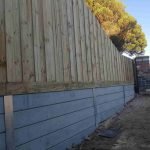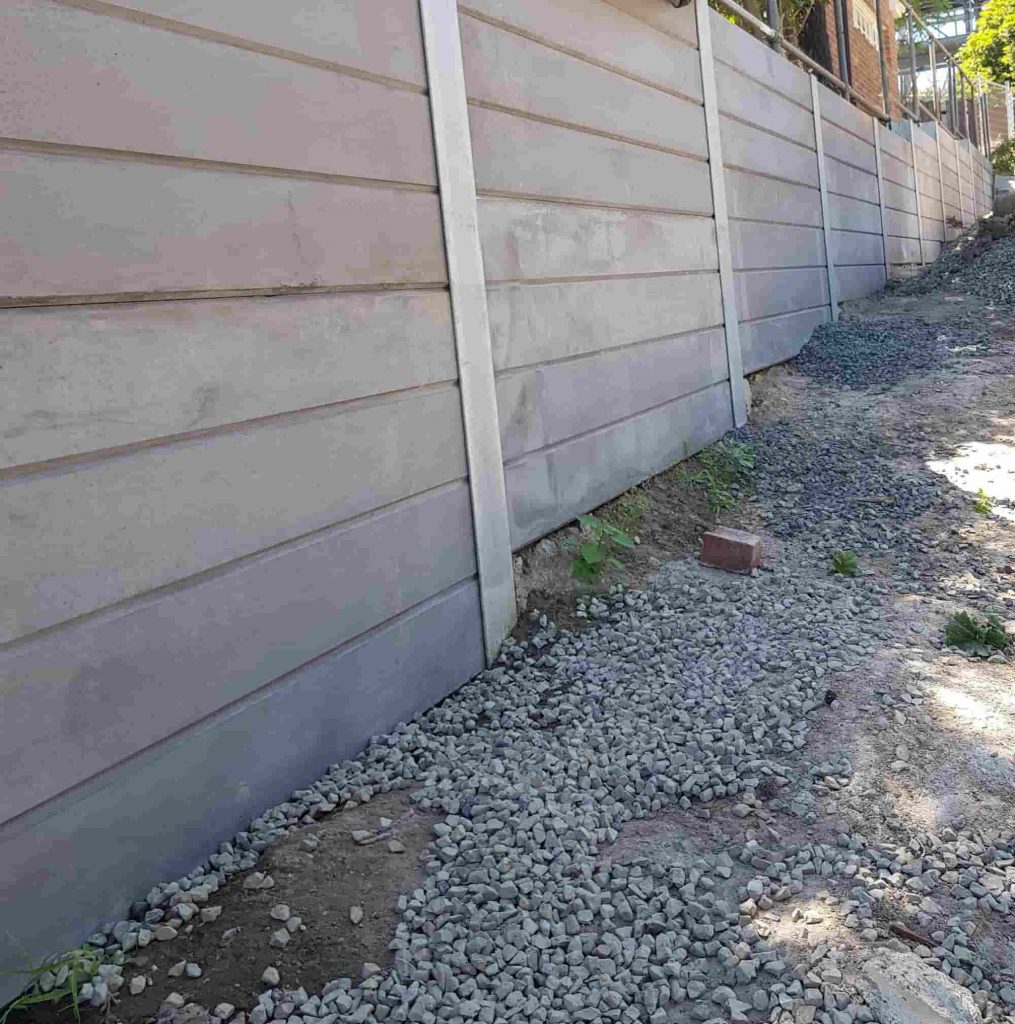Introduction
Retaining walls are more than just a useful service for handling soil and preventing erosion; they're likewise a visual improvement to your landscape. Whether you're handling a high slope, producing terraced gardens, or just looking to enhance the total look of your property, working with the ideal retaining wall contractor is essential for achieving the desired outcome. This guide will walk you through whatever http://andyfence-builderzjqj315.almoheet-travel.com/essential-abilities-every-top-tier-retaining-wall-contractor-need-to-have you need to know about working with a retaining wall specialist in your location, ensuring that you make an informed decision.
What is a Retaining Wall?
Before diving into the specifics of working with a professional, it's essential to comprehend what a retaining wall is and its various forms. A retaining wall is created to hold back soil and prevent disintegration while supplying structural support. They can be found in numerous products, including:
- Timber Sleeper Retaining Walls: Often made from treated timber or recycled materials, these walls are popular for their natural appearance and ease of installation. Concrete Sleeper Retaining Walls: Known for their sturdiness and strength, concrete sleepers can withstand considerable pressure and last longer than other materials. Brick Retaining Walls: These walls provide a traditional appearance and can be tailored to fit various designs. Stone Retaining Walls: A natural option that blends effortlessly into landscapes, stone walls provide both performance and beauty.
Understanding these options will help you communicate effectively with your picked retaining wall contractor.
Why You Need an Expert Retaining Wall Contractor
1. Competence in Design and Materials
An expert retaining wall specialist has the understanding to suggest appropriate materials based upon your particular landscape requirements. Whether it's choosing between timber sleeper or concrete sleeper maintaining walls, their knowledge ensures that the structure is not only functional but likewise visually pleasing.
2. Code Compliance
Building regulations often dictate how retaining walls need to be built. A skilled retaining wall contractor understands these codes and will guarantee that your task sticks to local regulations.
3. Danger Mitigation
Constructing a retaining wall includes different dangers such as soil failure or water drain concerns. A competent professional has experience handling these challenges effectively.
Your Go-To Guide for Hiring a Retaining Wall Contractor Near Me
Finding the ideal professional might appear difficult, but breaking down the procedure makes it workable. Here's how you can tackle it:
1. Research Study Resident Contractors
Start by searching online for "retaining wall contractor near me." Look for specialists with good reviews and ratings on platforms like Google My Business or Yelp.
2. Request for Recommendations
Word-of-mouth referrals from friends or family can lead you to credible professionals who have previously delivered exceptional work.
3. Inspect Credentials and Experience
Ensure that the professionals you're considering have correct licenses and insurance. Their experience should align with the particular type of retaining wall installation you require-- be it brick, stone, or concrete sleeper.
4. Demand Quotes
Obtain comprehensive quotes from several specialists describing labor costs, material expenditures, and job timelines. This comparison will help you determine market rates.
5. Evaluation Portfolios
Ask prospective professionals for portfolios showcasing previous tasks similar to yours. Visual evidence of their work can boost your confidence in their capabilities.
6. Interview Candidates
Don't shy away from asking concerns during interviews; ask about their technique to style, material selection, task timelines, and guarantee services used post-installation.
The Significance of Product Selection in Retaining Wall Construction
Choosing the right materials can significantly impact both performance and visual appeals. Let's dive deeper into some popular alternatives:
Timber Sleeper Retaining Wall: Pros and Cons
- Pros: Environmentally friendly choice; simple to set up; affordable. Cons: Prone to rot; needs routine maintenance.
Concrete Sleeper Retaining Wall: Pros and Cons
- Pros: Long-lasting; resistant to weather; minimal upkeep required. Cons: Higher initial costs compared to wood options.
Brick Retaining Wall: Pros and Cons
- Pros: Ageless appeal; long lasting; customizable. Cons: Labor-intensive installation; potential higher expenses depending on design complexities.
Stone Retaining Wall: Pros and Cons
- Pros: Natural beauty; strong structural integrity. Cons: High expense; needs knowledgeable labor for installation.
Understanding these benefits and drawbacks enables homeowners to team up effectively with their selected retaining wall installer Melbourne when making decisions relating to building materials.
How Much Does It Expense to Hire a Retaining Wall Contractor?
The cost of hiring a retaining wall specialist differs commonly based upon a number of aspects:
Type of Product Utilized: As seen above, wood may be cheaper initially compared to stone.
Wall Size: Larger walls need more products and labor time.
Site Preparation Requirements: If comprehensive grading or earth-moving is required before installation begins, this will increase overall costs.
Labor Charges: Rates may vary based upon location (for example, retaining wall setup Melbourne might differ in pricing compared to backwoods).
On average, house owners may spend in between $15-- $50 per square foot for product expenses alone, plus additional labor costs ranging from $40-- $100 per hour depending upon intricacy levels involved in your task scope.
FAQs About Hiring a Retaining Wall Professional Near Me
Q1: How do I discover reliable retaining wall builders near me?
A1: Start by browsing online evaluations and asking pals or household for suggestions while examining qualifications carefully before making any decisions.
Q2: What allows do I require for my retaining wall project?
A2: Licenses differ by location but usually consist of zoning clearance if over 4 feet high; consult regional city policies prior starting building and construction work!
Q3: Can I install a retaining wall myself?
A3: While do it yourself setups are possible depending on intricacy level & & product choice (e.g., timber), professional support makes sure safety & & code compliance especially if handling bigger structures!

Q4: How long does it require to complete a typical installation?

Q5: What maintenance is needed after installation?
A5: Regular examinations must take place annually checking drainage systems & & fixing any damage without delay extending life-span significantly!
Q6: Will my home worth increase after setting up a new retention system?
A6: Yes! A visually pleasing well-built structure improves curb appeal which equates straight into increased residential or commercial property values over time!
Conclusion
In conclusion, working with the best retaining wall contractor near you is important when considering installing any kind of retention system at home! By understanding types available (lumber vs concrete sleeper vs brick), assessing certifications correctly through research study approaches outlined previously in this guide-- you'll be geared up with everything needed before taking that plunge towards transforming landscaping efforts into truth! Don't forget-- this financial investment not just protects versus erosion however boosts visual appeal too-- making all those hours invested outside much more enjoyable knowing that hard work settled tremendously!
So keep in mind-- take your time during choice procedures while keeping sight focused strongly ahead towards developing something amazing together with professionals who share same vision! Happy building!